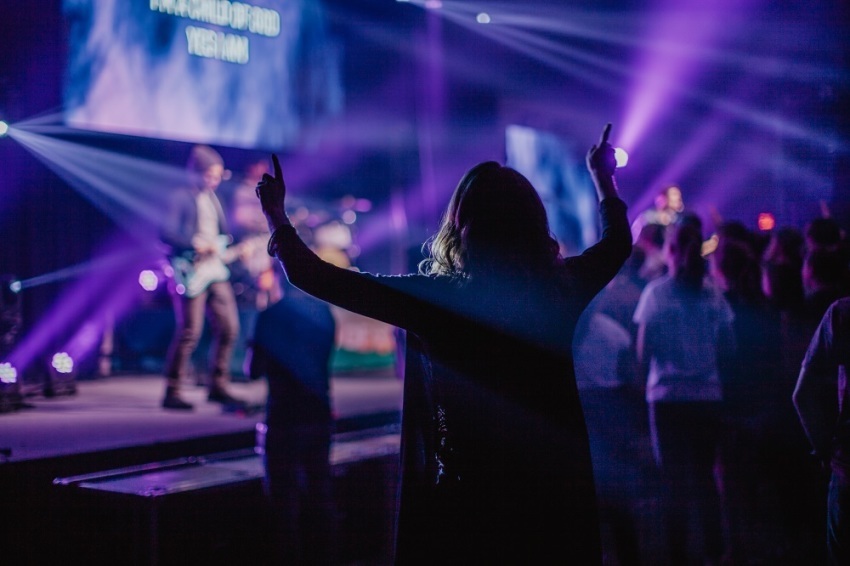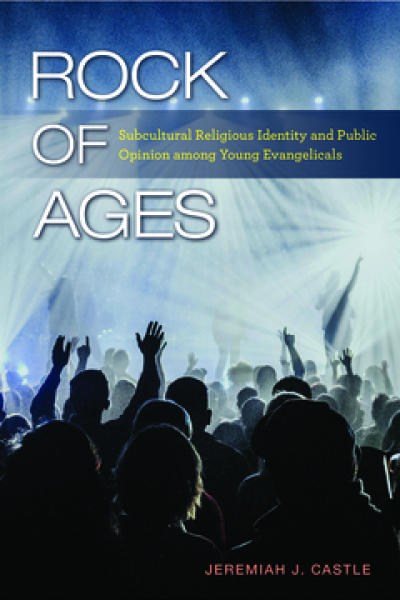How liberal are young evangelicals?
How liberal are young evangelicals?

Are today's young evangelicals becoming more liberal?
This is the main question behind Central Michigan University political scientist Jeremiah Castle's new book, Rock of Ages: Subcultural Religious Identity and Public Opinion among Young Evangelicals, published this month by Temple University Press.
For the most part, Castle found young evangelicals to be just as conservative as older evangelicals, with a few notable exceptions.
Looking at ideological identification, political party identification, issue positions and issue priorities, young evangelicals look like their older peers.

Castle found young evangelicals, 18-29, to be more liberal than previous generations of young evangelicals on three issues — gay marriage, immigration and welfare. (His data included all races except black. Black evangelicals were coded as black Protestant.)
About half, 51%, of young evangelicals oppose gay marriage, compared to 73% of evangelicals 75 and older. Young evangelicals are still significantly more likely, by 31 percentage points, to oppose gay marriage than their peers, however.
On immigration, only about 1/3 of young evangelicals (32%) believe immigrants have made the country worse, compared to about 2/3 (68%) of old evangelicals (65 and older). Like gay marriage, young evangelicals are still more conservative than their age-group peers on immigration, but the gap is smaller — 13 percentage points.
On government aid to the poor, young evangelicals are also more liberal but the difference is not as large as gay marriage and immigration. When asked whether welfare helps the poor or does more harm than good, 54% of young evangelicals answered more harm than good, compared to 62% for both the 30-49 and 50-64 age groups. Young evangelicals are 14 percentage points more conservative than their age-group peers on this issue.
On foreign policy, on a survey question asking respondents whether diplomacy or more military strength is better for peace, 39% of young evangelicals took the pro-military position, compared to 46% of evangelicals aged 30-49 and 53% of evangelicals aged 50-64.
There were other issues where young evangelicals were more liberal, but when Castle controlled for age-based effects (changing issue positions as one ages or sharing ideological traits with generational peers), only those three issues — gay marriage, immigration and welfare — showed a more liberal direction for young evangelicals. Plus, on the welfare issue, the difference was so small Castle was unsure whether he was seeing a shift among young evangelicals.
"In short, the results cast serious doubt on general accounts of a new generation of young, liberal evangelicals," Castle concluded.
Additionally, while some have noticed a change in priorities for some young evangelicals, such as a greater emphasis on caring for the poor as part of their pro-life activism, Castle did not find that pattern in survey data, noting that "young evangelicals continue to rank immigration, the wealth gap, and the environment fairly low in terms of their issue concerns."
Castle did find a difference, however, between young and old evangelicals in voting for President Donald Trump.
In the 2012 presidential election, young evangelicals voted for the Republican candidate, Mitt Romney, at close to the same rate as old evangelicals (71% for 18-29, 74% for 50-64, 79% for 65+). But in the 2016 presidential election, there was a large gap — 21 percentage points — between young and old evangelicals. A majority of young evangelicals still supported Trump, 61%, but the rate was much smaller than for older evangelicals. The oldest evangelicals showed the strongest support — 82% of evangelicals 65 and older voted for Trump.
The gap was not caused by young evangelicals backing the Democrat, Hillary Clinton, however. Instead, 14% of young evangelicals opted for a third party, independent or write-in candidate, and those candidates were, in general, conservatives.
"Patterns in voting behavior outside the major party candidates suggest that many young evangelicals were seeking a more socially and politically orthodox conservative candidate," Castle wrote.
One chapter from Castle's book takes a closer look at liberal young evangelicals, who are 15% of young evangelicals and follow liberal evangelical leaders like Tony Campolo, Shane Claiborne, Ron Sider and Jim Wallis. Castle found that, as expected, liberal young evangelicals prioritize issues like poverty and the environment. He was surprised to find, however, that liberal young evangelicals are still somewhat conservative on social issues, like abortion and traditional marriage, especially compared to liberal young non-evangelicals, even though they don't make those issues a priority.
In an Aug. 20 article for FiveThirtyEight, Daniel Cox, a research fellow at the American Enterprise Institute, also looked at the views of young evangelicals using some more recent data. Unlike Castle, Cox examined only white young evangelicals.
Similar to Castle's findings, Cox found Trump was less favorable among young white evangelicals than older white evangelicals. Only 60% of white evangelicals aged 18 to 44 said they were favorable to Trump, compared to 80% for those 45 and older. And among the favorable, the differences were even more stark when comparing the "very favorable" to "somewhat favorable." Only 25% of the younger white evangelicals answered "very favorable" compared to 55% for the older age groups.
Also like Castle, Cox found a generational divide on immigration, where most young white evangelicals (66%) think immigrants are good for the country and most old white evangelicals (54%) say immigrants are a burden.
This is especially important, Cox pointed out, because data provided to him by Pew Research Center showed an increase in white evangelicals saying immigration should be a top priority, from 49% in 2014 to 72% in 2019. Cox shared this data with The Christian Post. It shows the biggest increases — 10 percentage points — in white evangelicals saying immigration should be a top priority from January 2015 (55%) to January 2016 (65%) and from January 2018 (62%) to January 2019 (72%). In the general population, for comparison, those saying immigration should be a top priority didn't change much from 2018 to 2019, from 47% to 51%.



























